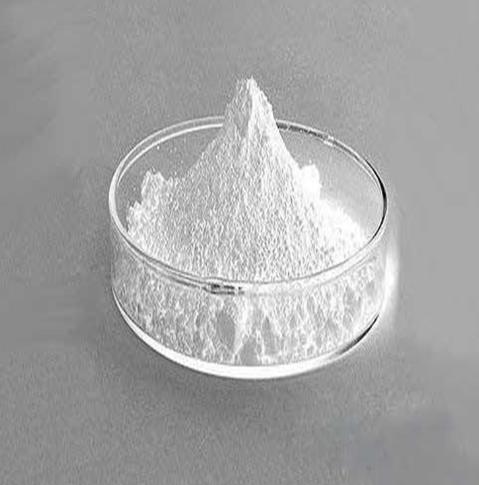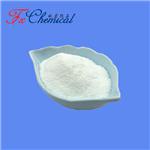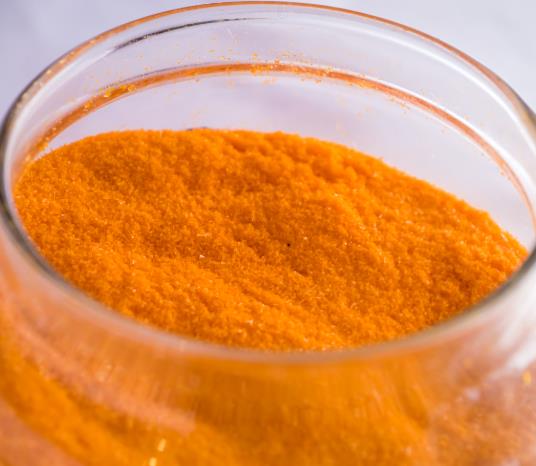Cysteamine Hydrochloride: An Overview of Properties, Composition, Applications, and Safe Storage Practices
Cysteamine Hydrochloride is a small-molecule organic compound whose molecular structure is composed of chemical groups related to cysteine metabolism. As a medicinal ingredient with good bioavailability, Cysteamine Hydrochloride plays an important role in treating metabolic diseases. Meanwhile, in recent years, the frequency of use of CCysteamine Hydrochloride in the cosmetics industry has gradually increased, especially in the fields of whitening and pigmentation repair.
Cysteamine Hydrochloride typically exists in powder or crystal form and is a reliable active ingredient in both pharmaceuticals and cosmetics. However, the application of Cysteamine Hydrochloride requires professional guidance, as improper use of it may cause side effects or reduce efficacy.

Figure 1 Characteristics of Cysteamine hydrochloride
The use of Cysteamine Hydrochloride
In the field of medicine, the most commonly used application of Cysteamine Hydrochloride is for the treatment of a rare genetic metabolic disease - Cystinism. Patients with cystine syndrome are unable to effectively metabolize cysteine due to genetic mutations, resulting in abnormal accumulation of cysteine in cells and ultimately damaging organ function.
Cysteamine Hydrochloride can clear excess cysteine in cells through chemical mechanisms, alleviate disease symptoms, and improve patients' quality of life. This treatment is usually carried out in the form of oral medication. In addition, topical preparations have also been used to treat corneal lens deposition caused by cysteine accumulation.
In the field of skincare and cosmetics, the main function of Cysteamine Hydrochloride in the skincare industry is to whiten and fade pigmentation. Cysteamine Hydrochloride can effectively reduce skin pigmentation, including melasma, sunspots, and age-related pigmentation problems, by inhibiting key pathways of tyrosinase and melanin production. Compared to other whitening ingredients such as hydroquinone or vitamin C, Cysteine chloride has less irritation and is suitable for long-term use. Many high-end skincare products use Cysteamine Hydrochloride as a core ingredient to solve stubborn pigmentation problems and have gained a good reputation.
Side effects of Cysteamine Hydrochloride
In medical treatment, patients using Cysteamine Hydrochloride may experience some adverse reactions, mainly including gastrointestinal discomfort: nausea, vomiting, abdominal pain, and diarrhea are the most common reactions, especially in the early stages of treatment.
Neurological symptoms: such as drowsiness, headache, or emotional fluctuations (including anxiety and mild depression).
Skin and body odor changes: Patients may experience rash or abnormal body odor, which to some extent affects their daily life.
In the field of skincare, although Cysteamine Hydrochloride is generally considered mild and effective, certain populations may experience skin irritation such as mild burning, stinging, or redness, which usually subsides with adaptation.
Allergic reactions: Some users may develop allergies to this ingredient, manifested as itching, swelling, or severe irritation, and should immediately stop using and consult a doctor.
Anti-elastic pigmentation: Insufficient sun protection measures may lead to the aggravation of existing pigmentation. Therefore, it is necessary to use high-magnification sunscreen to enhance the effect.
Both drugs and cosmetics should undergo sensitivity testing or consult professionals before use.
Storage method of Cysteamine Hydrochloride
Light-resistant storage: Cysteamine Hydrochloride is sensitive to light and should be stored in a sealed dark container to avoid direct sunlight.
Temperature control: The optimal storage temperature is 15 °C to 25 °C, and some formulations may require refrigeration storage.
Avoid moisture: This compound is prone to moisture absorption and should be stored in a dry environment. Seal immediately after use.
Precautions for the use of Cysteamine Hydrochloride
Medical use: It should be strictly used according to medical advice, taken according to the prescribed dosage or applied topically, and avoid adjusting the dosage without authorization.
Skincare use: It is recommended to undergo skin sensitivity testing when using for the first time, gradually increase the frequency of use, and combine with daytime sun protection measures to achieve the best results.
Keep away from children: Medications or cosmetics should be kept out of reach of children to prevent accidental ingestion or misuse.
![Article illustration]() Reference
Reference
[1] Ahramiyanpour N, Saki N, Akbari Z, et al. Efficacy of topical cysteamine hydrochloride in treating melasma: a systematic review[J]. Journal of Cosmetic Dermatology, 2021, 20(11): 3593-3602.
[2] Atallah C, Viennet C, Robin S, et al. Effect of cysteamine hydrochloride-loaded liposomes on skin depigmenting and penetration[J]. European Journal of Pharmaceutical Sciences, 2022, 168: 106082.
You may like
See also
Lastest Price from Cysteamine hydrochloride manufacturers

US $0.00-0.00/kg2025-04-21
- CAS:
- 156-57-0
- Min. Order:
- 1kg
- Purity:
- 99%-101%
- Supply Ability:
- 10 tons

US $10.00/KG2025-04-21
- CAS:
- 156-57-0
- Min. Order:
- 100KG
- Purity:
- 99%
- Supply Ability:
- 100 mt


